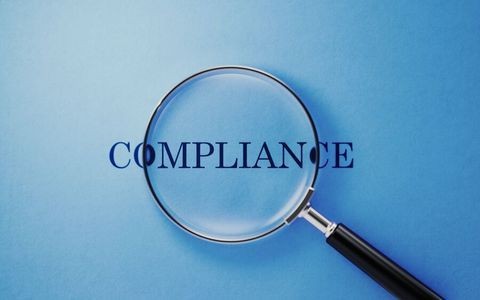Thomas P. Gies
Overview
Companies need experienced counsel to address the ever-changing dynamics of the modern workplace. That’s Tom Gies. Tom serves as a strategic partner to leading companies by helping them achieve their business objectives with creative solutions to complex labor and employment law challenges.
Career & Education
- University of Notre Dame, 1972
- The George Washington University Law School, J.D., 1976
- District of Columbia
- Supreme Court of the United States
Thomas's Insights
Client Alert | 3 min read | 12.06.24
On September 30, 2024, Chief Judge Laura Taylor Swain of the U.S. District Court for the Southern District of New York dismissed a putative class action in Mejia v. High Brew Coffee Inc., 1:22-cv-03667-LTS (S.D.N.Y. Sep. 30, 2024), holding that an online-only business’s website is not a place of public accommodation under Title III of the Americans with Disabilities Act (“ADA”). Chief Judge Swain’s opinion is the first of its kind for the Southern District and is the latest installment in an ongoing judicial debate about the reach of the ADA’s regulatory reach.
Client Alert | 5 min read | 11.25.24
Circuit Courts Appear to Differ Regarding Constitutional Challenges to the NLRB
Client Alert | 7 min read | 08.16.24
Client Alert | 35 min read | 07.11.24
Insights
U.S. Department Of Labor Issues Proposed Rule On Independent Contractors
|01.23.23
Employee Benefit Plan Review
- |
10.01.20
Employee Benefit Plan Review
- |
08.15.20
Crowell & Moring
Labor & Employment – Non-Compete Agreements: Harder to Enforce?
|01.22.20
Crowell & Moring's Litigation Forecast 2020
- |
06.06.16
Bloomberg BNA Daily Labor Report, No. 108
Labor and Employment - New Challenges in Disability and Exempt Status
|01.19.16
Crowell & Moring's Litigation Forecast 2016
Litigation Forecast 2016: What Corporate Counsel Need to Know for the Coming Year
|01.19.16
a Crowell & Moring LLP publication
The Federal Government May Need To Play A Role In Vaccine Credentials, Despite Reluctance
|06.08.21
Government Executive
Six Ways Your Office Will Be Different In 2021, Assuming You Ever Go Back To It
|12.30.20
Washington Post
Thomson Reuters Names 16 Crowell Lawyers as “Stand-out Lawyers”
|03.07.23
- |
11.09.21
Crowell & Moring’s Trade Secrets Trends
- |
05.03.21
Crowell & Moring’s Trade Secrets Trends
FLSA ‘Regular Rate’ – DOL Provides Retailers with First Proposed Rules in Over 50 Years
|04.08.19
Crowell & Moring's Retail & Consumer Products Law Observer
DOL’s Proposed Overtime Rule to Increase Minimum Salary for Store Managers to Remain Exempt
|03.26.19
Crowell & Moring's Retail & Consumer Products Law Observer
New Reporting Pay Obligations for California Retailers – Blame the Cell Phone?
|03.12.19
Crowell & Moring's Retail & Consumer Products Law Observer
Practices
- Labor and Employment
- Labor and Employment Class Actions
- Wage and Hour
- Litigation and Trial
- Class Action Defense
- ERISA and Employee Benefits
- Employment Discrimination Counseling and Litigation
- Pay Equity
- Investigations
- Trade Secrets and Insider Threats Investigations
- Corporate Counseling, Governance and Compliance
- Emerging Companies and Venture Capital
- Labor and Employment Investigations
- Health Care
Industries
Thomas's Insights
Client Alert | 3 min read | 12.06.24
On September 30, 2024, Chief Judge Laura Taylor Swain of the U.S. District Court for the Southern District of New York dismissed a putative class action in Mejia v. High Brew Coffee Inc., 1:22-cv-03667-LTS (S.D.N.Y. Sep. 30, 2024), holding that an online-only business’s website is not a place of public accommodation under Title III of the Americans with Disabilities Act (“ADA”). Chief Judge Swain’s opinion is the first of its kind for the Southern District and is the latest installment in an ongoing judicial debate about the reach of the ADA’s regulatory reach.
Client Alert | 5 min read | 11.25.24
Circuit Courts Appear to Differ Regarding Constitutional Challenges to the NLRB
Client Alert | 7 min read | 08.16.24
Client Alert | 35 min read | 07.11.24






